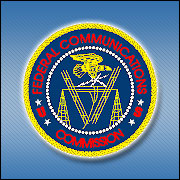
The Federal Communications Commission has closed the first round of comment on its national broadband plan initiative, a requirement of the American Reinvestment and Recovery Act of 2009.
The FCC must deliver a completed plan to Congress by February 2010 showing the way to more widespread broadband adoption nationwide.
Plan Requirements
The framework incorporates discussions of ways to bring more broadband service to rural areas and directives to update the nation’s broadband infrastructure to accommodate the increasing use of electronic health records, FCC spokesperson David Fiske told the E-Commerce Times.
The law provides funding to assist in expanding broadband access.
The plan must address the most effective way to ensure universal broadband access, ways to make such networks most cost-effective, the state of current broadband deployment, and how to use broadband technology to advance public policy goals such as consumer welfare, public safety and workforce training.
Competition, Net Neutrality
Initial comments focused on increasing competition and, in many cases, strengthening Net neutrality rules.
For instance, Free Press, an organization dedicated to decentralized media ownership and telecommunications policies that permit free and unhindered flow of information, told the FCC that it should strongly support Net neutrality rules and make supporting next-generation broadband technologies a priority.
The group also recommended that the policies should support increased competition, encourage deployment of high-capacity networks, and reduce costs for consumers.
Industry Perspectives
The National Cable and Telecommunications Association did not provide a copy of its comments, but spokesperson Joy Sims directed inquiries to statements on the organization’s Web site indicating that the trade group wants to ensure awards under the recovery act are not used to reduce private investment or hinder competition, among other considerations.
In its comments, the Computer and Communications Industry Association called for heightened competition and primacy for consumers’ rights under the new plan, spokesperson Heather Greenfield told the E-Commerce Times.
“This doesn’t mean that network operators should be precluded from engaging in reasonable network management,” she said, “but we think that network operators should disclose these management practices and privacy policies clearly.”
Google’s Take
Google also commented on the plan, encouraging the FCC to install broadband fiber as part of all federally funded transportation and public works projects, and to get broadband services to every library, school and other community facility in the country.
Google also suggested providing incentives for network infrastructure installers to put in excess cable that could be sold or leased to increase competition.
The next round of comments on the plan is due in July, Fiske said.












































‘"This doesn’t mean that network operators should be precluded from engaging in reasonable network management…but we think that network operators should disclose these management practices and privacy policies clearly.’"
If there will ever be national broadband service, or even a network of smaller independent ISPs that provide the same breadth of access, there will have to be some compromise between network neutrality and network optimization. Many of our clients are trying to balance these demands and their management practices are not greed and profit driven as they are often made out to be by hardcore net neutrality enthusiasts. The bottom line is that a handful of bandwidth-intensive users can negatively impact the QoS for everyone else on a network. This is especially true in rural areas and with smaller ISPs. It essentially comes down to implementing some sort of network optimization device or having everyone else suffer. Our suggestion to all of our customers is exactly what’s stated above — as long as you’re upfront with your users, putting the majority’s interest ahead of a small minority of bandwidth hogs is closer to net neutrality than allowing a few people to bog down an unregulated network.